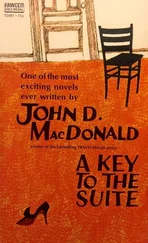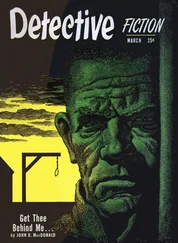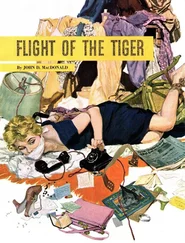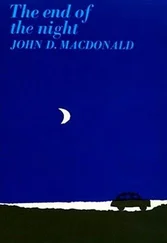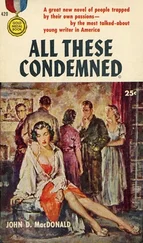The thought broke hurriedly to other matters. “I have wondered if there is any way that I can give you technical help. I do not understand the formulas behind the operation of your ship. All I know is that propulsion is dependent on alternating frames of temporal reference. That is the same formula that was used for our ships long, long ago. As I told you, six of them stand outside our world. I have discovered micro-book operation manuals, but they are beyond me. I could memorize wiring charts and control panels and then, using your hand, draw them for you.”
“There are problems we haven’t licked yet. You could try to do that.”
“What should I look for?”
“The manner in which astrogation charts were coordinated with the time jump. Our astronomers and mathematical physicists believe, at this point, that once the jump is made, it will take weeks to make observations and reorient the ship. They are working on some method which will extend the time jump as a hypothetical line through space from the starting point to the new time frame. Then the coordinates of that hypothetical line, using opposed star clusters for reference points, would eliminate starting from scratch on orientation in the new position. Can you follow that?”
“Yes. I will see if I can find out how it was done in the past.”
The guard stepped closer and took a startlingly firm grasp of Bard Lane’s arm just above the elbow. His expression was respectful, but his grasp was like iron.
“Sir, you have been talking aloud to yourself.”
The alien prescience slid off to a spectator’s cubicle within Bard’s mind.
Bard smiled up at the guard. “Glad you’re alert, Robinson. I’m doing some practice dictation on an important letter I have to write after lunch.”
Robinson looked uncertain. Bard put his napkin beside his plate. “I’ll be glad to go along to Dr. Inly’s office, Robinson, but—”
“I think maybe you better, sir. The order was pretty strict.”
Heads turned as they walked out of the mess hall, the bruising grip still punishing Bard’s arm. He heard the buzz of conversation as the door swung shut behind them. The sunlight was a blow from a fist of gilt. They went down the street toward Sharan’s office.
And the alarm sirens began to shrill.
Bard ripped away from Robinson’s grasp and lifted his long legs into a hard run toward the communications center seventy yards away. The sirens died into a moan as he burst through the door. The man at the master switchboard, gray-pale with strain, glanced at Bard, cut in a wall baffle onto the circuit and said, “From the ship, sir. Go ahead. It’ll be picked up.”
“Who is this?” Bard demanded.
The answering voice was metallic. “Shellwand. On the ship. We’ve just found a guard on G level, near the shielding, laid out cold, sir. We’re trying to get everyone out of the ship, sir.”
“Who did it?”
“We won’t know, sir, until we— It’s beginning to tremble, sir! The whole—”
The diaphragm in the baffle began to pick up resonance and bray. The man at the master board cut it off. They all heard it then. Once heard, it could never be forgotten. Bard Lane had heard it many times.
It was like the low roll of muted thunder behind distant hills, combined with a thousand roaring male voices, singing a sustained note in discord.
It was the song of men who try to reach the stars. It was the resonating fury of fission, held just short of instantaneous detonation. At Hiroshima it had been one thunderous whip-crack of fate that brought a new age to man. Now the whip-crack was harnessed, controlled, directed, guided.
Bard Lane turned and dived from the room. His shoulder caught the flimsy door and knocked it spinning from the torn hinges. He did not feel the pain. He ran out into an open space and stood with his feet planted, fists clenched, shoulders back, staring toward the Beatty One.
The thunder noise grew louder. Blue-white flame licked out around the fins. Heat cracked against his face and he turned his eyes from the unbearable glare. As the vast sound grew even greater the Beatty One nuzzled upwards at the camouflage tent. It rose with painful slowness, with the ponderousness of some unthinkable prehistoric beast. It ripped up through the tent, slowly gaining speed, profiling the tent to its ogive nose, tearing the tent from the towers, slipping through it, igniting it with the fierce tail flame. Now the blue-white unbearable flame was twice as tall as the ship had been. It reached from tail to earth, as though the Beatty One balanced on it.
The base of one tower, softened by heat-lick, settled and the tower leaned slowly toward the north, not gathering speed in the fall, just slowly bending over to lie gently against the ground. The steel of the elevator frame was puddled at the base, but stood miraculously erect. A tiny figure toppled from the elevator platform, crisping to blackness before it neared the ground.
The white gouting stern of the Beatty One was now thrice as high as the towers still standing. The thunder was lifting up through octave after octave as the speed of the Beatty One increased. A great flap of burning fabric fluttered down. The rest of the fabric slid off and the silvery length of the ship, a mirror in the sun, was revealed. Even with the despair that filled his heart, the horror and the great shock of failure, Bard Lane felt and recognized the strong sense of awe at the sheer beauty of the ship.
A tiny figure toppled from the high open port. The ship had moved just enough off the perpendicular so that the toy figure came down, not spinning, motionless in the sun-hot air, toward the street of the village. It hit in the dust, bursting work clothes, rebounding eighteen inches before lying still, a jellied, grotesque thing. The hard roar changed to shrillness and the Beatty One winked high in the sun. High and higher. Vapor trail. And higher. Then slowly canting over, as he knew it would do without the 20 Mohs stability plates which had not yet been installed in the A-six jet flow. It made a bright white line against the impossible blue of the sky, an arc, a parabola, as neat as any inscribed on graph paper. A line up to a peak and a line down. The shrillness was a scream that tore at the inner ear. A line down to the earth. He saw the flare and guessed the distance at fifteen to twenty miles, due south. The scream still continued after the explosion flare had filled half the sky, then stopped abruptly. The air pushed hard against them, then the earth shook as though a truck were going by. At last came the gutteral crack-boom of the explosion. And silence. Brown cloud lifting in mushroom shape toward the blue sky. A bit of the vapor trail was still high in the sky, wavering off in the prevailing wind.
Bard Lane took two steps to the curbing, sat down and held his face in his hands. Nearby, a wooden building crackled as the flames bit into it. The project fire engines screamed to a stop, sirens ridiculous in comparison to the memory of the scream of the dying Beatty One — a mosquito trying to outshout an eagle. Somebody rested a steady hand on Bard Lane’s shoulder. He looked up and saw the stolid, seamed face of Adamson. Tears had cut channels in the dust on his cheeks.
“Nick, I... I...”
Adamson’s voice was gruff. “I’ll take an emergency crew down and see what she did when she hit. If we’re lucky, she’ll be five miles from the village. Better go get on the radio, Bard, and give the word. Then I think you ought to make an announcement over the PA.” Adamson walked solidly away.
He walked to his office. The guard had voluntarily given up his assignment. The project personnel stood in the street. Not large groups. Two or three or four. Low voices. Long silences. They glanced quickly at him and then away. He went through the outer office. Bess Reilly sat at her desk. She sat with her forehead against the top of her typewriter. Her bony shoulders shook but she made no sound.
Читать дальше
![Джон Макдональд Wine of the Dreamers [= Planet of the Dreamers] обложка книги](/books/430039/dzhon-makdonald-wine-of-the-dreamers-planet-of-cover.webp)

